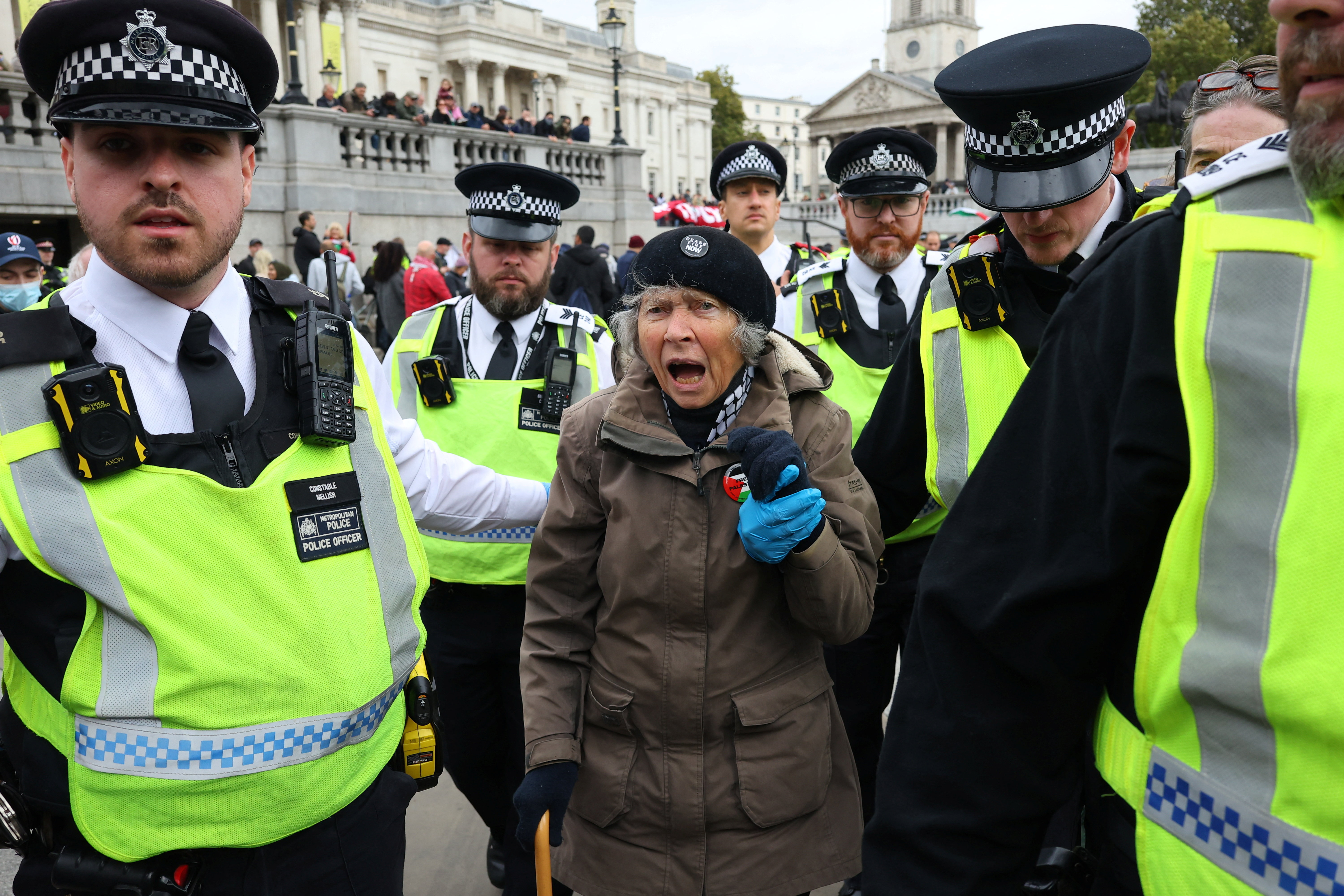LONDON, UNITED KINGDOM: British Home Secretary Shabana Mahmood has come under intense criticism after proposing new legislation that would empower police authorities to impose curbs on repeat protests, amid a surge of pro-Palestine demonstrations across the country.
Mahmood’s proposal, introduced as part of the government’s efforts to “protect public order,” seeks to grant police greater discretion in controlling protests that occur repeatedly at the same locations. Under the plan, officers could restrict the timing, location, and frequency of demonstrations, citing public safety and the “cumulative disruption” caused by recurring gatherings.
The Home Secretary justified the move by saying that ongoing protests — particularly those related to the Gaza conflict — have created “fear and tension” among Jewish communities, especially in the aftermath of a deadly synagogue attack in Manchester. She clarified that the new rules are not intended to ban protests outright, but to regulate their repetition to prevent intimidation and disorder.
However, Mahmood’s remarks have drawn a storm of backlash from political opponents, human rights advocates, and civil society groups. Critics warn that the proposal represents a dangerous erosion of democratic freedoms, arguing that it could allow the government to silence dissent under the guise of maintaining public order.
Labour MP Zarah Sultana accused Mahmood of betraying the very values her party stands for, saying the new powers threaten free speech and undermine the right to peaceful assembly. Green Party leader Zach Polanski also condemned the move, describing it as “deeply irresponsible” and an attempt to equate peaceful protest with extremism.
Despite the uproar, Mahmood remains firm, insisting that freedom of protest “does not mean the right to protest anywhere, at any time, without consequence.” She reiterated that her proposed law merely acknowledges the “cumulative impact” of repeated demonstrations — particularly those causing sustained disruption to communities or public services.
Observers, however, fear this could pave the way for sweeping restrictions on civil liberties, setting a precedent for the suppression of political expression in the United Kingdom. Rights organisations have urged the government to withdraw the plan, warning that such measures risk eroding one of democracy’s core pillars — the right to dissent.
This story has been reported by PakTribune. All rights reserved.



